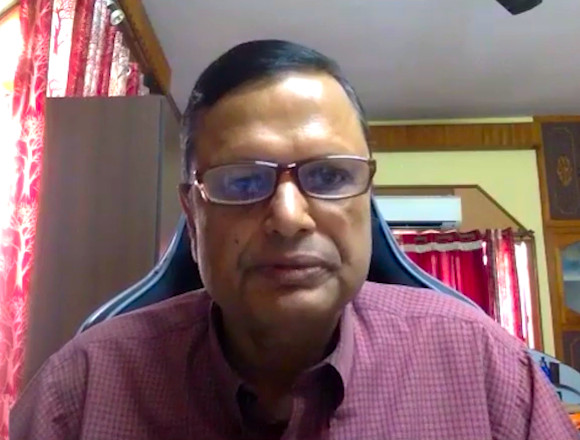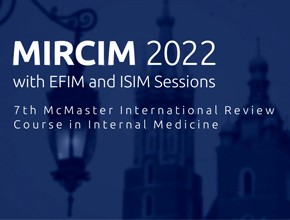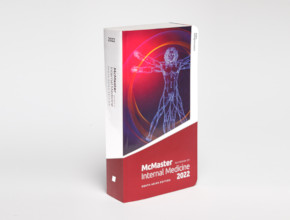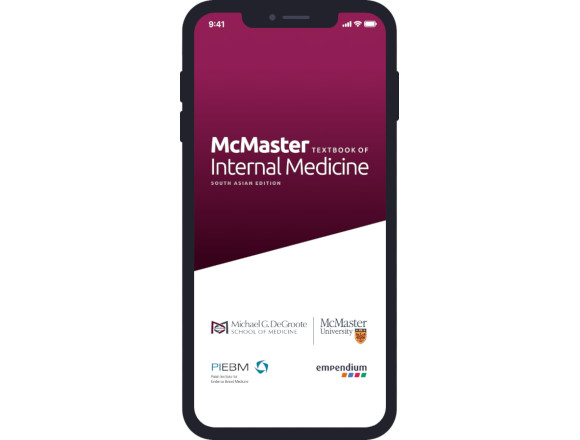Professor Jyotirmoy Pal, editor in chief of the McMaster Textbook of Internal Medicine South Asia Edition, shares his motivation behind joining the Canadian project in an interview with Professor Roman Jaeschke. He emphasizes the value of a world-class textbook supplemented by special chapters and commentaries prepared by regional experts and defines its place in the medical education system in South Asia.
Roman Jaeschke, MD, MSc: Good morning in Canada and good afternoon in India. My name is Roman Jaeschke and I am an editor in chief of the McMaster Textbook of Internal Medicine. It is an educational resource which we started about 5 years ago at McMaster University and we wanted to make it simple, practical, and trustworthy. For about the last 3 years we have been trying to cooperate with our friends in South Asia, in India—with Professor Pal and Professor Chatterjee. Today we also had the pleasure to host Professor Kamlesh Tewary and Professor Sundar [the interviews will be available soon].
The question from my part is: I know why I am doing this. Professor Pal, you joined our effort and you became the leader of this effort. Why did you do it? How do you think this textbook is different from what is available in South Asia at the moment?
Jyotirmoy Pal, MD: My name is Professor Jyotirmoy Pal. I am one of the editors in chief from the Southeast Asian part of the world. Four years back, when we first met, we thought we should have a textbook that would incorporate the opinions of regional experts regarding distinct characteristics of many disease manifestations, epidemiology, and practice [in South and Southeast Asia]. Because what we did in the Asian part of the book—which is originally a book from the Western world that may not fit with the Indian context—so we knew we should incorporate the data, opinions, and expertise of the Indian counterpart to make it more useful to Indian doctors practicing medicine.
It also has some other important features. It has a unique GRADE system that will help in evidence-based management decisions. The [GRADE] symbols are given for strong and weak recommendations. The quality of evidence is also indicated. So when a reader will go through the book, he can understand the unique features and differences in the disease pattern or treatment pattern in India and South Asia, and also the difference between strong and weak recommendations.
Roman Jaeschke: I hope in North America at least we have achieved what we were after. I know that it is a process. A process in which we now have a few hundreds of chapter editors from India alone, not mentioning other countries from South Asia. Do you think we are closing on achieving our goal of making it different and unique for South Asia?
Jyotirmoy Pal: Yes. We incorporated different opinions not only from India but also from Bangladesh, Nepal, Bhutan, Sri Lanka, and the Philippines. And we also incorporated chapters that were originally not included in the McMaster Textbook: on different tropical diseases, snakebites, or poisonings that are unique to this part of the world. We carefully selected the topics to incorporate in the book.
Roman Jaeschke: I know how to get this book in Canada, the United States, and Europe. How do physicians get access to it in India?
Jyotirmoy Pal: In India we have just launched the print version, and very soon we will go for a mobile application and website www.mcmastertextbook.com/sae. So, it’s for different groups, because in this particular vast world population, there is a vast majority of our doctors and students, and different doctors and different students have different approaches to books. Some prefer the print version, some prefer the website, and some the e-version. So we have modified the presentation of this book and it is and easily accessible to all our readers in this part of the world.
Roman Jaeschke: Professor Pal, we started this [textbook] in Canada in order to make some difference. I hope that, together with you and Professor Chatterjee being the chief editors in South Asia, we can change the world a little bit for the better in your part of the world. And I want to thank you for this opportunity.
Jyotirmoy Pal: Thank you.















